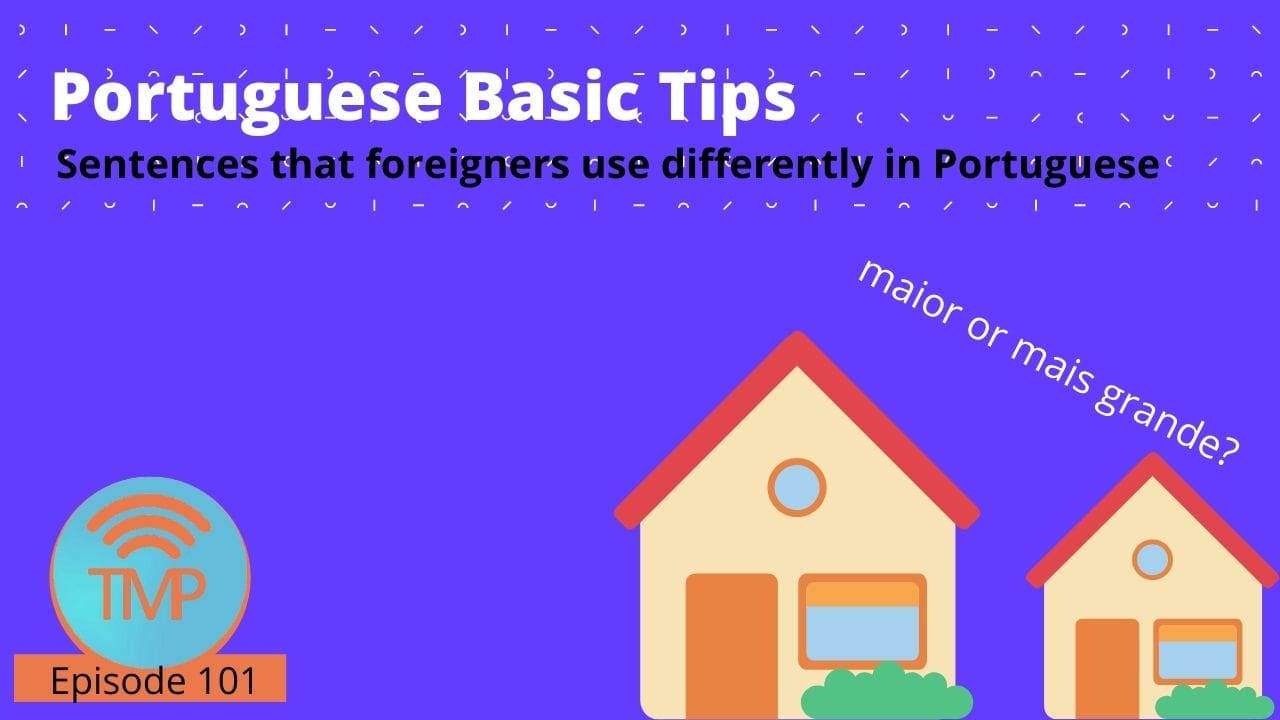Sentences that foreigners use differently in Portuguese

Sentences that foreigners use differently in Portuguese
Hello there and welcome to our Portuguese Basic Tips 101, about sentences that foreigners use differently in Portuguese
On today’s podcast, we’re going to talk about some sentences that foreigners use in Portuguese, but they are different from the way we speak in Brazil. I mean, they are not necessarily wrong, incorrect, but they are different from the way we speak here.
Bastante x Muitos
Listen to the sentence:
- Havia bastante pessoas lá!
I’ve myself heard some people talking like that. That’s not correct. In Brazil, people use “muitas” instead of “bastante”. In this case, specifically, we could grammatically say “havia bastantes pessoas lá”. However, to be honest with you, nobody speaks like that in Brazil. Here it’s common to say: havia muitas pessoas lá or havia muita gente lá.
In short: it is preferable that you use “muito or muitos” rather than “bastante”.
- Havia muita gente lá (there were a lot of people there) / Havia muitas pessoas lá .
Listen to our previous episode about when to use eu fui and eu era in Portuguese
Mais pequeno x Menor
This one here is not so common anymore. Still, sometimes we find people speaking “mais pequeno que”, when they should say “menor que”. The same goes to “mais grande que”. The correct sentence would be “maior que”.
- Listen:
- A casa dele é maior que a minha (His house is larger than mine).
- A casa dele é menor que a minha (His house is smaller than mine).
See, here is a tip for you: when you are comparing the same object, the same subject, you do use “mais pequeno que” or “mais grande que”.
How’s that?
Listen:
- Minha casa é mais grande que confortável (My house is bigger than it is comfortable).
Specifically here we are comparing the same house, my house. In this case and – only in this case – we use “mais grande que”.
Cada dia x todo dia
Sometimes we tend to translate from English to Portuguese. Sometimes it works, but not always. That’s the case. Listen
- Eu vou ao trabalho cada dia ( I go to work everyday).
See, we don’t speak like that. In Brazil, we use “eu vou para o trabalho todo dia” or “todos os dias”.
However, if you want to complete the sentence, you can use “cada dia”.
- Eu vou para o trabalho cada dia mais cansado.
See: I get more and more tired, when I go to work.
Here there is an idea of gradation: something that intensifies more and more. In this case, you could use both: eu vou para o trabalho cada dia mais cansado or eu vou para o trabalho todo dia mais cansado.
To all the other cases, I suggest you to use “todo dia” or “todos os dias”.
Become a Premium Member to download our full transcripts
Click the link to read more about the differences about “todo” and “cada”
See you soon!
Thanks!
Marcos Sales
Podcast (portuguesebasictips): Play in new window | Download







Pure gold!